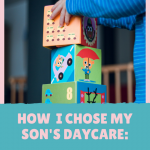I attended a qiyam at the local masjid a while back and left my daughter at home so that I could focus and get the most out of a spiritual event that – although it should – does not happen very often. As I went around, passing my salaams to friends and strangers alike I was asked over and over again, “Where’s your daughter?” to which I replied, “At home.”
What followed was so funny and so telling; over and over again I was looked at and asked incredulously, “You left her home alone?!”
It was then that I reminded them that my daughter does indeed have 2 parents and if she’s not with me, they should naturally assume she’s with her father. “Oh, so he’s babysitting?” many asked. He doesn’t get an hourly wage and I don’t leave him pizza money when I go out. He’s not babysitting, he’s parenting.
Many may believe this is a simple case of rhetoric but I believe it is a state of mind and I don’t blame this mindset on some sort of ‘middle-eastern’ mentality. As I began to look around I found this idea of the mother parenting and the father babysitting to be reinforced in our Canadian culture too. Why are there not change tables in every men’s bathroom? Why are women 99% of the time, the ones in the ads, carrying, kissing and laughing with the child? The more I looked and listened, the more I realized that as a society we seem to be unconvinced of how crucial fathers are to their children – particularly their daughters.
As we age, there is a stereotype that we (daughters) don’t need our fathers as much after a certain age because it may be uncomfortable to talk about things. When we started going through puberty and adolescence, this may have been a time when our fathers backed off and let mom have the main relationship. We contribute to the distance by keeping things from our dads because we think they’ll respond more critically than our moms. We assume our dads aren’t as nurturing or intuitive as our mothers are, and may avoid going to them for personal advice and comfort.
But that’s not all…we may also be adding to this distance through our role as mother by (unconsciously) discouraging our husbands to act on their paternal instincts. If we believe that our husbands can and should be capable parents, then we should be encouraging them to partake in the lives of our children in a relationship that is separate from the ones we’ve built with our children. What I mean by this is that most daughters go through their mother to reach their father and this diminishes the odds of a strong relationship.
Study after study shows that positive fathering produces well-adjusted, confident and successful women who relate well to the other men in their lives. Researchers have concluded that a strong father presence is a major protective factor against early sexual outcomes. Alternatively, girls who have poor relationships with their dads tend to seek attention from other males at earlier ages. Not surprising. However what may surprise you is that the results a strong father-daughter relationship produces are not duplicated by mothers-daughter bonding.
So although as moms we may want to be our child’s everything, we cannot take the place of a good dad.
Lena Hassan
Lena Hassan lives in Ottawa, Ontario and is a loving mother to one.











